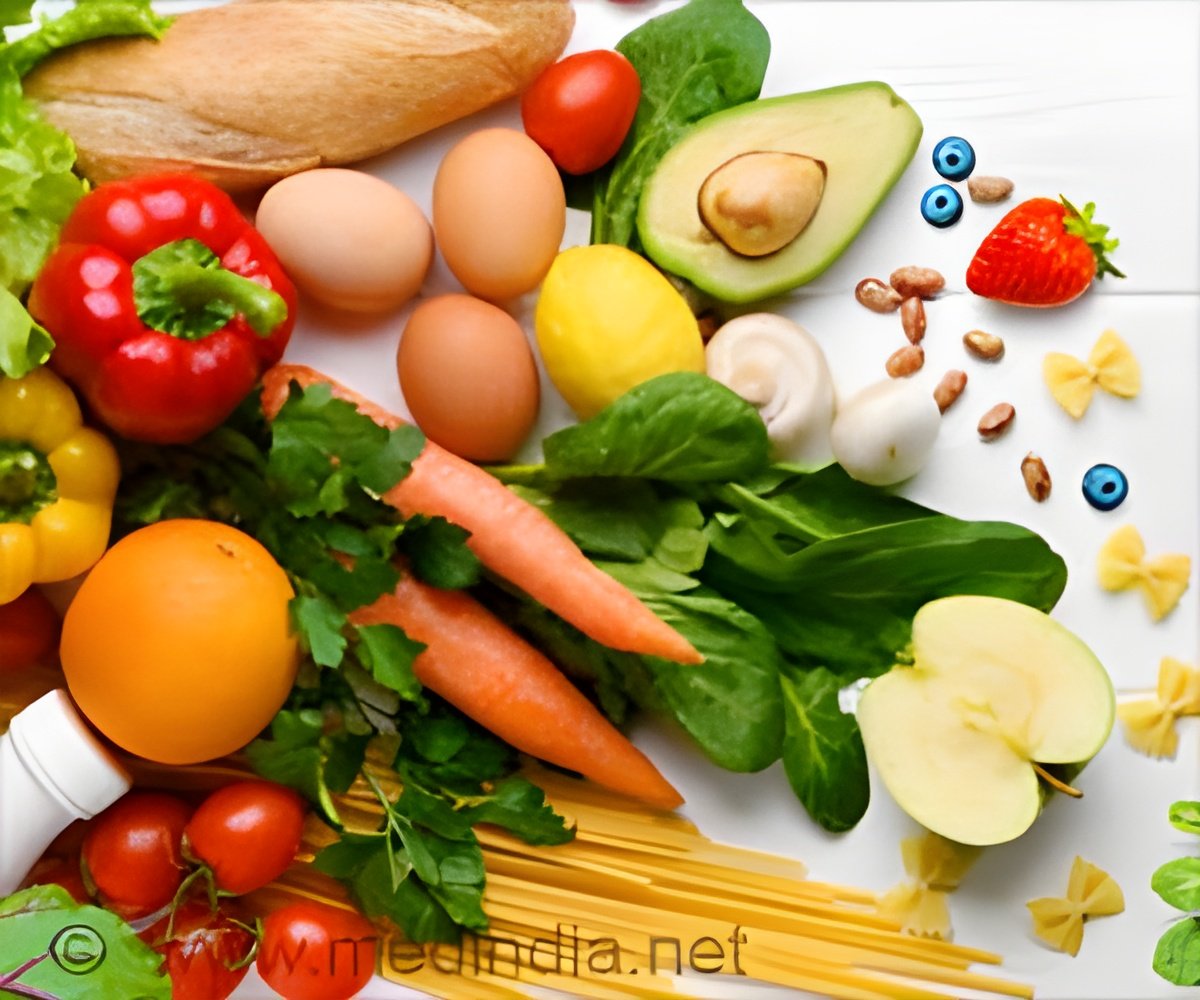Fuel your body with protein-packed fruits! Discover how guava, mulberries, and more can meet your protein needs while delivering vitamins and fiber.

- Protein-rich fruits like guava, mulberries, and jackfruit are great options to support your daily protein needs, especially for vegetarians
- Pairing protein-packed fruits with nuts, yogurt, or chia seeds increases overall protein and makes for tasty, balanced meals
- Consuming a variety of protein-rich fruits contributes not only to protein intake but also boosts immunity, digestion, and heart health
While fruits are recognized for their vitamins, antioxidants, and fiber, some are unexpectedly high in protein, making them crucial components of a well-balanced diet. Fruits, while not as high in protein as legumes, nuts, or dairy products, can serve as a great protein supplement to meet nutritional demands in general, particularly for vegetarians looking to diversify their protein sources.
Guava, jackfruit, and mulberries are high in protein and contain critical vitamins, minerals, and phytonutrients that promote immunity, digestion, and heart health. None of these are high-fat or processed protein sources, thus they provide not only natural carbohydrates but also water. Combining these fruits with a few other protein sources, such as yogurt, nuts, or chia seeds, will increase your protein intake. Add them sometimes to boost protein consumption and overall health in a refreshingly tasty, natural way.
Advertisement
How Much Protein Do We Need Daily?
In general, an adult requires 0.8 grams of protein per kilogram of body weight daily (1). Thus, a 70-kilogram individual may require approximately 56 grams of protein every day. Requirements might vary depending on age, intensity of activity, and health goals; for example, an athlete may require between 1.2 and 2 kilograms. To avoid muscle mass loss, older persons require comparable protein intakes. A somewhat larger amount of protein should be sought from a balanced, diverse source.
Advertisement
Fruits With High Protein Content
Guava
Guava is one of the most protein-rich fruits available; one cup contains around 4.2 grams of protein. Guavas are also high in Vitamin C, fiber, and antioxidants, making them an all-around nutrient source. Guavas are prevalent in India and can be eaten fresh or prepared in a variety of ways.
Slice the guava and season with black salt, chaat masala, or salt, as well as red chilli powder, for a delightful and protein-rich refreshing snack.
For added protein, mix the guava with some yogurt, a banana, and chia seeds. The yogurt and nuts improve the protein level, making it an excellent breakfast energizer. You may prepare a zesty chutney with guava, coriander, green chilli, and a squeeze of lemon. This can be served as a side to dosas or parathas, or as a dip for snacks.
Mulberries
Mulberries are a lesser-known yet great source of protein (2), with approximately 2 grams per cup. They are high in antioxidants, fiber, and vitamin C. In India, fresh mulberries are frequently available in local marketplaces during the spring season. Toss mulberries with cucumber, tomatoes, and chaat masala. This is a tart, refreshing snack that is both hydrating and high in protein. Blend mulberries with yogurt and a banana, then top with chia seeds, nuts, or additional fresh mulberries. Smoothie bowls are visually appealing and a wonderful source of protein. Dried mulberries are an excellent addition to trail mix. Combine them with almonds, cashews, and pumpkin seeds for a high-protein snack to enjoy throughout the day.
Avocado
Avocado has approximately 3 grams of protein per cup and is high in healthy fats, potassium, and fiber (3). This creamy fruit is becoming popular in India, particularly in urban areas, and may be easily incorporated into a number of recipes. Combine avocado, chickpeas, tomatoes, cucumbers, and a squeeze of lime. This protein-packed salad can be served as a light lunch or as a side dish for dinner. For a new spin on traditional lassi, combine avocado, yogurt, a sprinkle of salt, cumin powder, and a little of mint. This drink is both refreshing and nutritious, with a high protein content.
Banana
Bananas are not as high in protein as the other fruits on our list, but they do contain approximately 1.3 grams per cup. They are quite adaptable and work well with other high-protein foods to increase their nutritional value. Bananas are high in potassium, fiber, and vitamin B6. Blend a banana with peanut butter, milk or yogurt, and cinnamon. This protein-packed smoothie makes an excellent post-workout snack. Layer banana slices with chia pudding (prepared by soaking chia seeds in milk). Sprinkle with nuts or seeds for extra protein. This is a nutritious dessert or brunch choice. Top oatmeal with chopped bananas, almonds, or walnuts, and sprinkle with honey. The combination of oats, almonds, and bananas makes for a nutritious, protein-packed breakfast.
Jackfruit
Jackfruit is a tropical fruit prevalent throughout India that offers around 2.4 grams of protein per cup. Its distinctive texture makes it a popular meat substitute in vegetarian cuisines. Jackfruit is also high in fiber, vitamins C, and potassium. Cook raw jackfruit (typically available in green form) with spices such as turmeric, cumin, and coriander to make a flavorful curry. This meal tastes well with rice or roti and is packed with protein and fiber. Stir-fry jackfruit with vegetables and spices for a quick and healthy meal. To provide more protein, sprinkle with toasted peanuts or sesame seeds. Mash the cooked jackfruit with spices, breadcrumbs, and some boiling chickpeas. Shape them into kebabs and grill them on a tawa for a protein-rich snack or supper.
Advertisement
Fruits that Contain Less Protein
Watermelon, muskmelon, papaya, and custard apple are low in protein, with the majority of their nutrition coming from water, natural sugars, vitamins, and antioxidants. These fruits are high in water and are commonly used to supplement vitamin intake rather than protein. Such fruits are delightful choices that promote immunity and skin health while containing little to no protein.
References:
- Dietary protein intake and human health
(Wu G. Dietary protein intake and human health. Food Funct. 2016 Mar;7(3):1251-65. doi: 10.1039/c5fo01530h. PMID: 26797090.) - Blackberries and Mulberries: Berries with Significant Health-Promoting Properties
(Martins MS, Gonçalves AC, Alves G, Silva LR. Blackberries and Mulberries: Berries with Significant Health-Promoting Properties. Int J Mol Sci. 2023 Jul 27;24(15):12024. doi: 10.3390/ijms241512024. PMID: 37569399; PMCID: PMC10418693.) - Nutritional Composition of Hass Avocado Pulp. Foods
(Ford NA, Spagnuolo P, Kraft J, Bauer E. Nutritional Composition of Hass Avocado Pulp. Foods. 2023 Jun 28;12(13):2516. doi: 10.3390/foods12132516. PMID: 37444254; PMCID: PMC10340145.)
Source-Medindia



